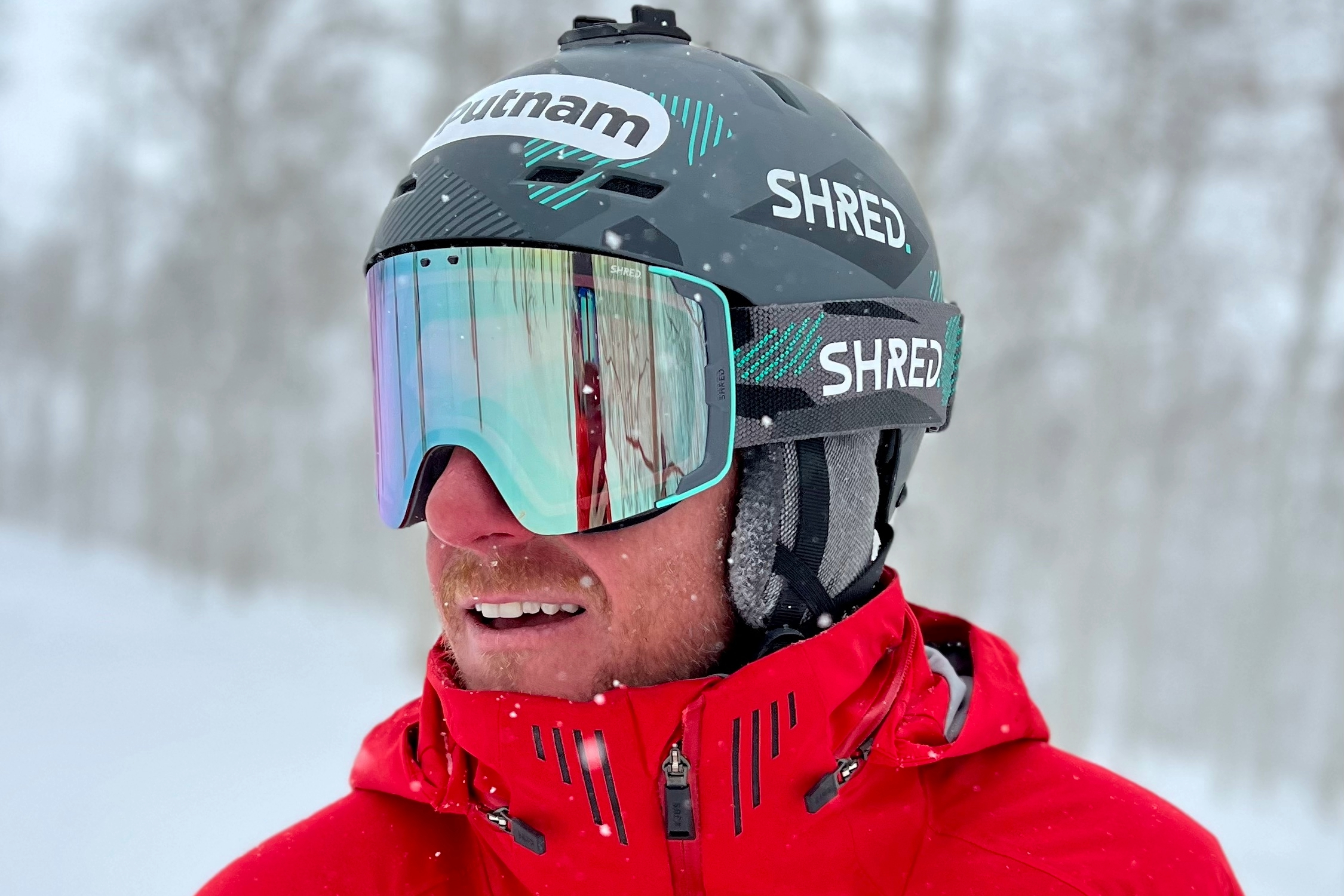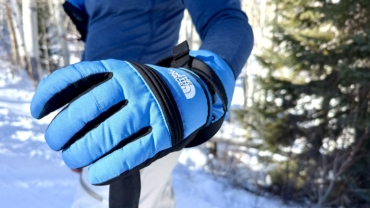This will be Ted Ligety’s third ski season since he retired from the competition circuit. Yet, the two-time Olympic gold medalist, five-time World Alpine Ski Champion, and ski goggle designer said he probably got more powder days last year than he’s ever gotten in his life.
“It was really fun to be able to get that level of skiing in,” Ligety told GearJunkie from his home in Park City, Utah. “It’s been nice being home during the winter … not hammering away and traveling all the time.”
But just because Ligety isn’t grinding on the race course anymore, doesn’t mean he’s been idle. Ligety’s had his own ski goggle and helmet brand, SHRED, since 2006. At the time, Ligety said he wasn’t satisfied with the racing goggles that were available to him.
“My [racing goggle] options back then were to look like a 60-year-old German tourist or, to use goggles from a freeride brand that had no field of view and wasn’t really for racing at a high level,” Ligety said. He wanted something that could help take his performance to the next level, and that would look good at the same time — so, he decided to make it.
“That was really the impetus for starting SHRED,” he said.
Ligety earned a name for his high-performance goggles, wearing them on the race course. The brand now sells a whole lineup of helmets, sunglasses, protective gear, and numerous different goggles for mountain biking, snowboarding, and, of course, skiing.
However, Ligety said, there are a few industry trends he is never going to humor, and that you’ll never find in SHRED goggles — things like magnets and photochromatic lenses. Not because of any personal beef Ligety has with those design features, but because he’s consulted scientists testing those technologies and he sees them more as marketing gimmicks than legitimate innovations.
This year SHRED is releasing a brand new style of ski goggles called Gratify — which, predictably, has neither magnets nor photochromatic lenses. Instead, the Gratify leverages goggle lens tech that MIT helped SHRED develop and which Ligety said measurably improves racers’ performances.
Ted Ligety’s High Standards
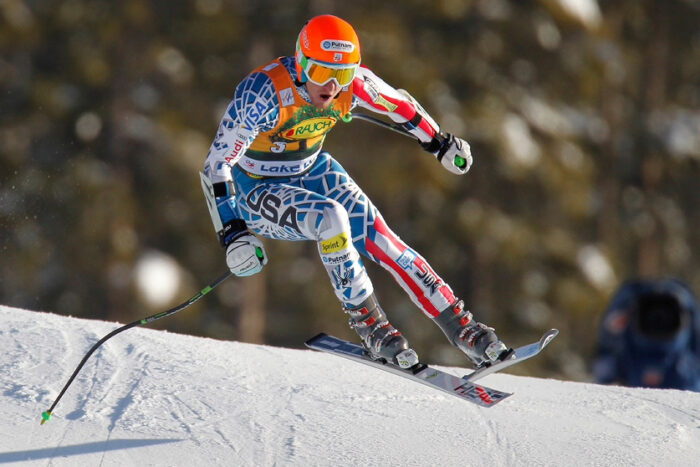
While he was racing, Ligety said he was involved in everything SHRED did, but did nothing himself — although that’s not totally true. While Ligety’s co-founder and partner Carlo Salmini ran their global office out of Venice, Italy, Ligety was running the U.S. operations out of his attic in Park City, enlisting friends as sales reps. Not to mention, he was repping their gear on the race course.
Now that he’s retired, SHRED has become Ligety’s primary project. And even though he isn’t using the products in competition anymore, he’s still designing them to the highest caliber of innovation possible.
“We’re trying to have solve for real-world issues,” he said. “We’re not trying to create good marketing gimmicks.”
That’s why you’ll never see magnets used in SHRED goggles. According to Ligety, magnets take up space within the lens, which diminishes the wearer’s field of view. They also come off as easily as they attach, making them a hazard for World Cup racing and recreational skiing alike.
He added that the brand won’t use photochromatic lenses, either — at least, not any time soon. “We really want this technology to pan out,” Ligety said. “But we have been testing photochromic and tint-changing lenses for years, and they do not meet our standards yet.”
They are simply not able to cover the full tint range on snow, he explained. Even in low light, there’s still too much albedo for the lenses to fully transition — meaning most photochromatic lenses only leverage about 20% of their potential range.
‘Performance-Enhancing’ Lenses That Aren’t Photochromatic
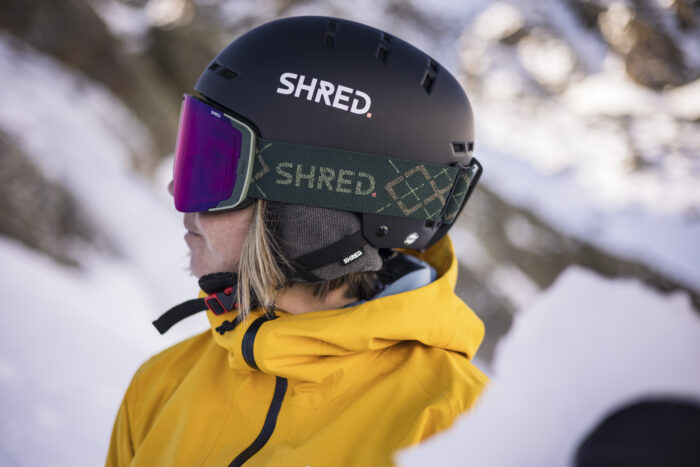
Instead of magnets, SHRED ski and snowboard goggle lenses snap onto and off of the outside of the frame (instead of into it), maximizing the wearer’s field of view. That design isn’t unique to SHRED, as many other goggle brands do the same. But it was specifically chosen because of the enhanced visibility.
And instead of photochromatic lenses, the brand uses its proprietary Contrast Boosting Lenses (CBL).
Salmini, SHRED’s co-founder, has a background in materials engineering. He developed SHRED’s CBL 2.0 with the MIT Sports Lab combining lens dye technology with a semi-polarizing filter. Supposedly, this lens offers improved depth of view and terrain perception, even in the flattest light. They absorb specific light rays that emphasize contrast and reflect all others, muting optical noise. It’s not unlike a pair of noise-canceling headphones … for your eyes.
“We figured out that if we had a polarization filter at just the right angle, it actually helps with the flat light. But then when it’s sunny, it reduces the glare as well,” Ligety said. “When it’s flat and dark light, racers on World Cup are on average doing 11 places better on that lens. So, it’s a huge difference performance-wise.”
The Latest From SHRED
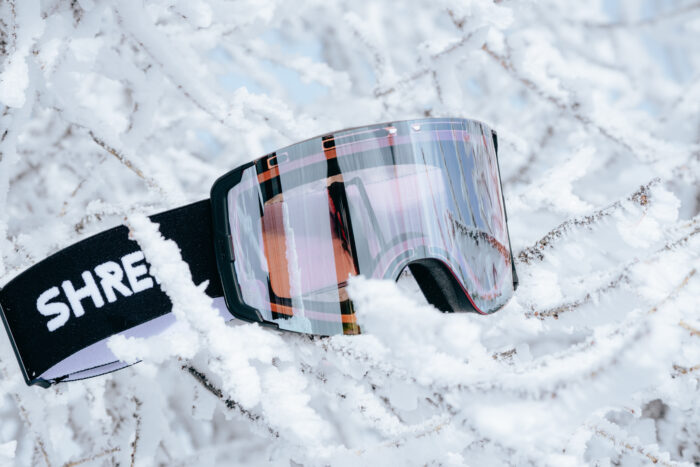
SHRED’s Gratify ski goggle is hot off the press and new for the 2023/24 season. According to the brand, Gratify offers the widest field of view of any goggle on the market. (Although, we have yet to test that claim.)
It’s a got a sleek, frameless, cylindrical lens design and fits universally with any helmet size. The thick 50mm strap adds stability and holds the goggles snugly against the wearer’s face.
“Gratify is a game-changer in the ski and snowboard goggle market,” Ligety said. “The performance and testing of Gratify has exceeded our expectations, and I am confident skiers and snowboarders everywhere will appreciate the difference it makes.”
Gratify ($220) is available on the SHRED website, among its four other goggle styles specific for skiing and snowboarding.
